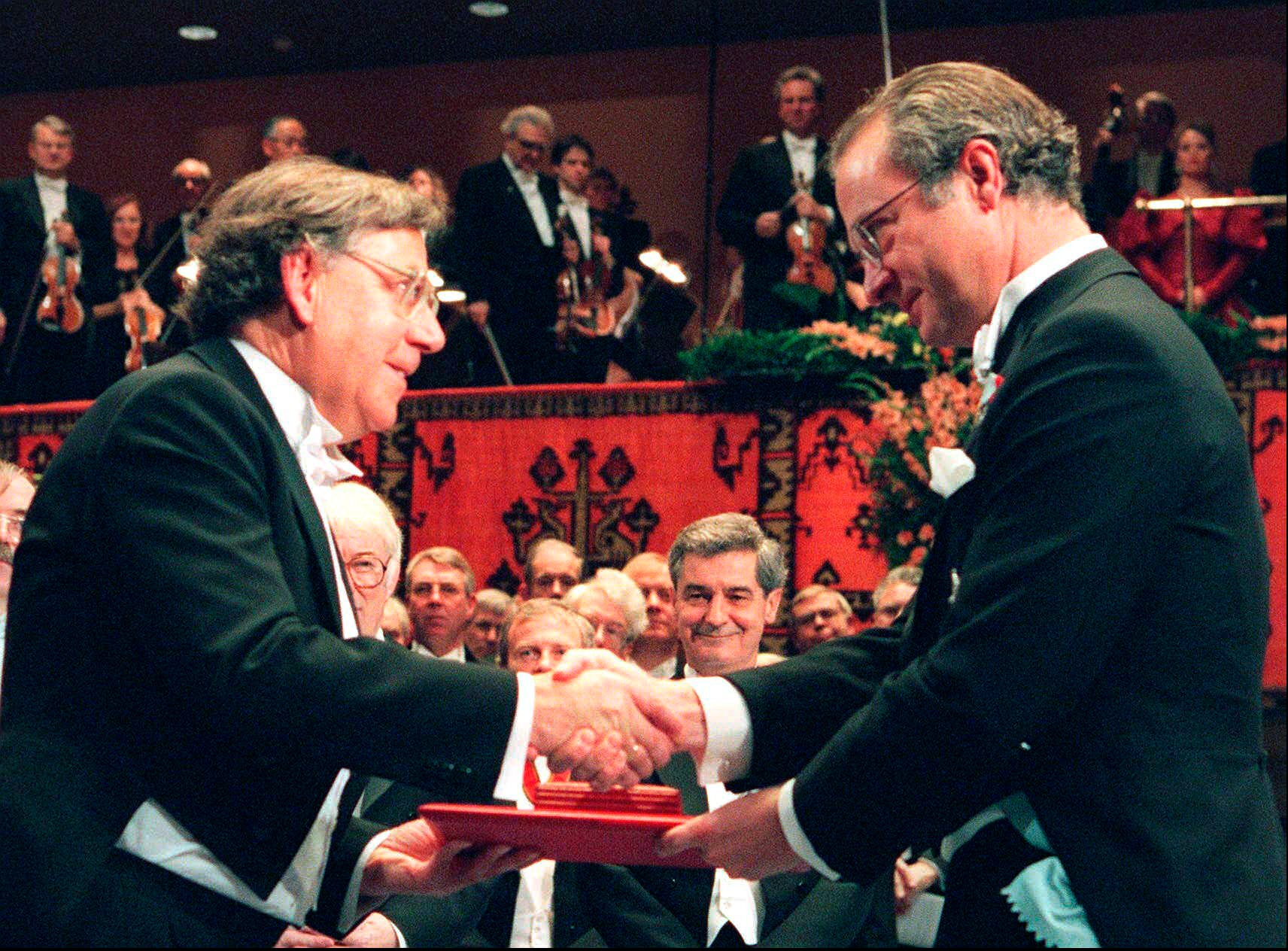Paul Crutzen, who shared Nobel for ozone work, has died
Dutch scientist Paul J

Paul J. Crutzen, a Dutch scientist who won the Nobel Prize for chemistry for his work understanding the ozone hole and is credited with coining the term Anthropocene to describe the geological era shaped by mankind, has died.
The Max Planck Institute for Chemistry in Mainz Germany, where Crutzen was the director of atmospheric chemistry from 1980 until his retirement in 2000, confirmed that he died Thursday at the age of 87.
“Paul Crutzen was a pioneer in many ways,” Martin Stratmann, the president of the Max Planck Society, said in a statement. “He was the first to show how human activities damage the ozone layer."
Stratmann said that Crutzen's work helped lay the basis for the worldwide ban on ozone-depleting substances, a rare example of fundamental scientific research leading to a global political decision within just a few years.
Crutzen was awarded the Nobel Prize in 1995 together with American chemist F. Sherwood Rowland and Mexican chemist Mario J. Molina.
“Paul was simply a giant” said Penn State climate scientist Michael Mann. “Along with Sherry Rowland, whom we sadly lost some years ago, and Mario Molina whom we lost just months ago, Crutzen alerted the world to the danger of ozone depletion caused by the pollutants known as chlorofluorocarbons from spray cans.”
Mann said Crutzen’s coining of the term ‘Anthropocene’ in an article for Nature in 2002 “so elegantly but simply captured the sobering notion that human impacts on our planet can, in just decades, rival the geological forces that led to mass extinctions over the eons.”
Crutzen had argued that, because the effects of humans on the environment had escalated so greatly in the past three centuries that global climate could be significantly altered, a specific term should be used to describe the period from the late 18th century to the present.
The term has since gained widespread use in scientific and environmental discourse as a way of reflecting the impact that humans have had on the planet and the daunting challenge posed by man-made climate change.
Crutzen argued that managing these effects “will require appropriate human behavior at all scales, and may well involve internationally accepted, large-scale geo-engineering projects, for instance to ‘optimize’ climate.”
Born in Amsterdam in 1933, Crutzen first trained as an engineer before moving to Sweden in the late 1950s. According to the Nobel Institute, Crutzen got a job as a programmer at Stockholm University's Department for Meteorology despite having no programming experience.
While working at the university he began studying meteorology on the side, acquiring a PhD in the field in 1968. Crutzen subsequently taught and conducted research at the University of Oxford, the National Center for Atmospheric Research in Boulder, Colorado, the University of Chicago and the University of California.
Crutzen is survived by his wife Terttu, his daughters Ilona and Sylvia, and three grandchildren.
___
AP science writer Seth Borenstein in Kensington, Maryland, contributed to this report.
Bookmark popover
Removed from bookmarks